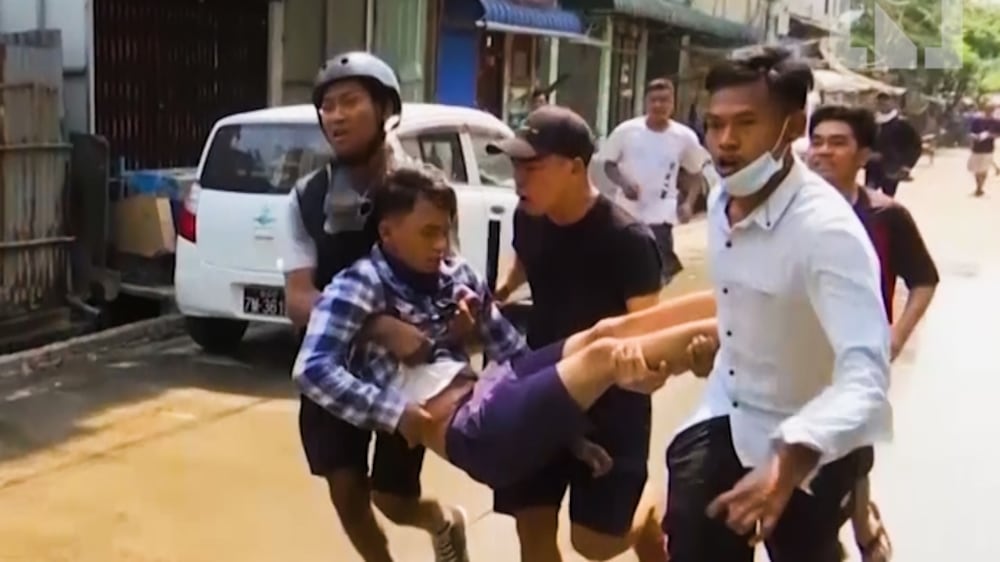Myanmar on Saturday experienced its bloodiest day since the military coup at the beginning of February.
Opponents of the ruling junta mourned the killings of at least 114 people by security forces but vowed to keep protesting against the army rule.
Children were among those killed on Myanmar's Armed Forces Day, according to news reports and witnesses.
The brutal crackdown drew renewed criticism from western countries, with the defence chiefs of several, including the UK and the US, releasing a joint statement denouncing the violence.
The strongly worded communique condemned the use of lethal force and urged the "Myanmar Armed Forces to cease violence and work to restore respect and credibility with the people of Myanmar that it has lost through its actions".
Saturday also brought some of the heaviest fighting since the coup between the army and the ethnic armed groups that control some parts of the country.
At least two people were killed in a military air strike on a village controlled by an armed group from the Karen minority, a civil society group said.
The Karen National Union faction earlier said it had overrun an army post near the Thai border, killing 10 people.
A junta spokesman declined to comment.
Gen Min Aung Hlaing, the junta leader, said during a parade to mark Armed Forces Day that the military would protect the people and strive for democracy.
The Myanmar Now news portal said 114 people were killed across the country in crackdowns on the protests.
Forty people died in Mandalay, Myanmar's second city, among them a 13-year-old girl.
At least 27 people were killed in the commercial hub Yangon, and another 13-year-old was among the dead in the central Sagaing region.
US Secretary of State Anthony Blinken tweeted:
We are horrified by the bloodshed perpetrated by Burmese security forces, showing that the junta will sacrifice the lives of the people to serve the few. I send my deepest condolences to the victims’ families. The courageous people of Burma reject the military’s reign of terror.
— Secretary Antony Blinken (@SecBlinken) March 27, 2021
The EU delegation to Myanmar said Saturday would "forever stay engraved as a day of terror and dishonour".
But condemnation was not universal.
Russia's Deputy Defence Minister Alexander Fomin attended Saturday's military parade in Naypyitaw, after meetingsenior junta leaders a day earlier.
Diplomats said eight countries – Russia, China, India, Pakistan, Bangladesh, Vietnam, Laos and Thailand – sent representatives but Russia was the only one to send a minister to the parade, which commemorates the start of the resistance to Japanese occupation in 1945.
Support from Russia and China, which has also refrained from criticism, is important for the junta as those two countries are permanent members of the United Nations Security Council and can block potential UN actions.
The military said it took power because November elections won by Aung San Suu Kyi's party were fraudulent, an assertion dismissed by the country's election commission. Ms Suu Kyi remains in detention at an undisclosed location and many other officials of her party are also in custody.







